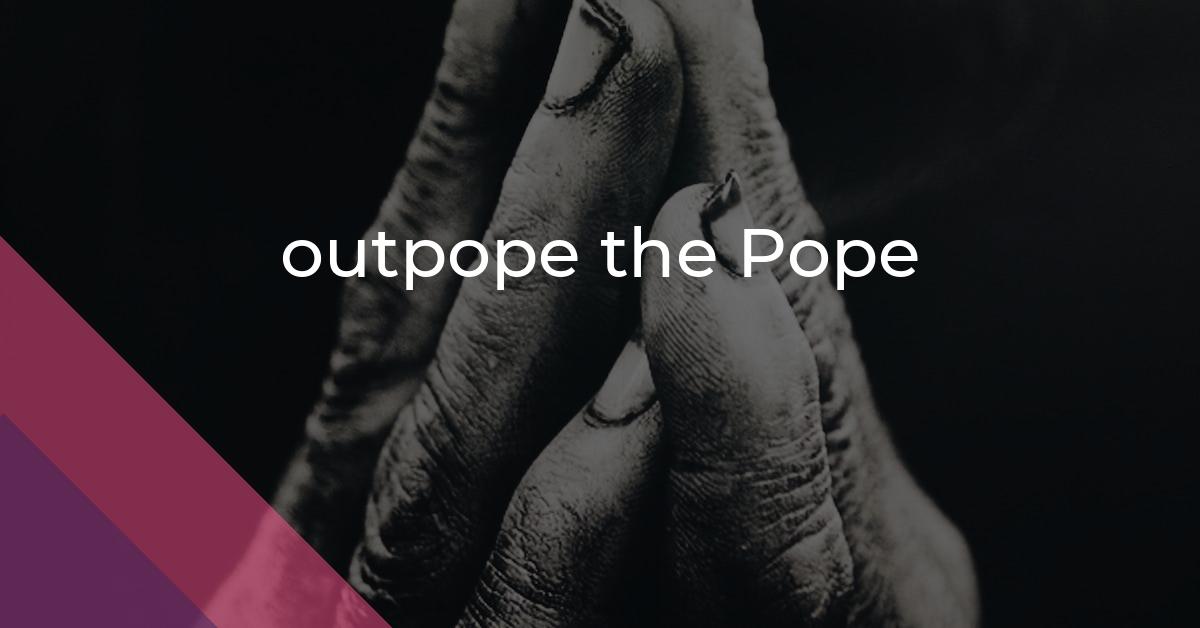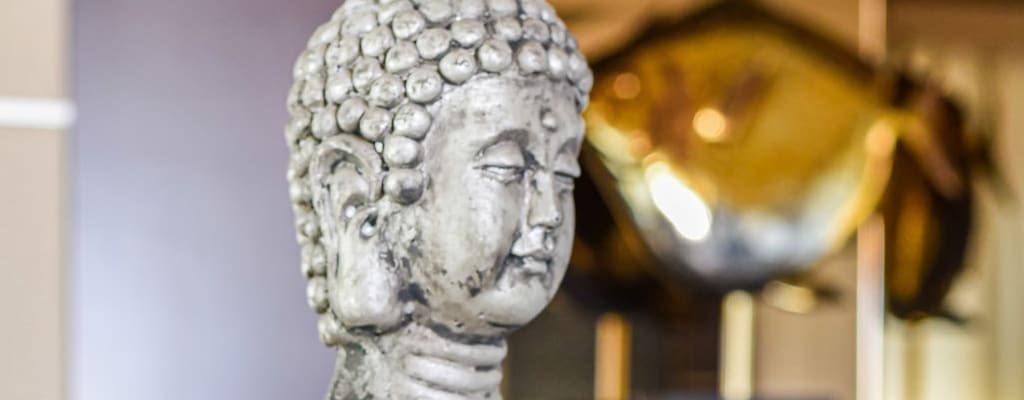outpope the Pope: Idiom Meaning and Origin
What does ‘outpope the Pope’ mean?
The idiom "outpope the Pope" means to surpass or outdo someone who is considered the epitome of excellence or authority in a particular field.

Idiom Explorer
The idiom "wipe someone's eye" means to outdo or surpass someone in a particular area, usually in terms of skill or achievement. It implies a sense of triumph or victory over the other person.
The idiom "reign supreme" means to have complete control or be in a position of undisputed power or authority.
The idiom "put someone out of their misery" means to end someone's suffering or discomfort, particularly when they are experiencing a difficult or painful situation. It implies a compassionate or merciful act of helping someone escape from their distress.
The idiom "put one past" means to deceive or trick someone, often by successfully hiding or concealing something from them.
The idiom "put on a pedestal" means to admire or worship someone or something to an excessive extent, often idealizing them and treating them as if they are perfect or infallible.
The idiom "put it past" means to believe or accept that someone is capable of doing something, often something unexpected or shocking, based on their past behavior or character traits.
"Put out" is an idiom that means to feel annoyed, upset, or inconvenienced by someone or something.
The idiom "push the boat out" means to make a special effort or go to great lengths, often in terms of spending money or time, to make an event or occasion more extravagant or impressive.
The idiom "punch above one's weight" means to achieve or perform at a level higher or more significant than expected for one's abilities or resources.
The idiom "pip to the post" means to just manage to surpass or defeat someone at the last moment or in a close competition.
Unmasking Papal Superiority
The idiom "outpope the Pope" refers to the act of doing someone one better by exhibiting behavior or characteristics that exceed or surpass those of the Pope himself. This metaphorical phrase highlights situations where individuals or institutions, intentionally or unintentionally, edge out the Pope and assume a position or take actions that appear to be more authoritative, influential, or exemplary.
While the precise origin of this idiom is uncertain, it is believed to have originated in the English language. The term "Pope" in this idiom refers to the leader of the Roman Catholic Church, who is considered by his followers to be the ultimate authority and the highest spiritual representative on earth. The idiom suggests that someone or something has managed to one up the Pope, outshining him in terms of power, influence, or moral authority.
Using this idiom, individuals or commentators emphasize the paradoxical nature of situations where an entity or individual seemingly surpasses the realm of the Pope's influence and control. It is often used in a hyperbolic or humorous sense to highlight the exceptional or unexpected qualities of the subject being discussed, whether it be political figures, influencers, or even laypersons who manage to gain widespread recognition or respect.
For example, in the realm of politics, this idiom comes into play when politicians or public figures exert greater influence, charisma, or impact than the Pope himself. Non-religious figures or institutions can also outpope the Pope by displaying qualities that rival or surpass his moral authority.
Take the scenario of a charismatic leader who manages to unite diverse groups. Their influence and charisma may overshadow the Pope's, making them the one to do someone one better. Similarly, social or political movements can gain immense popularity and widespread attention, regardless of the Pope's stance on the issue, effectively edging him out in terms of capturing public interest and support.
It is worth noting that the idiom "outpope the Pope" extends beyond the context of the Catholic faith. It can be used to describe a broad range of situations where someone or something unexpectedly eclipses the Pope's authority. The idiom sheds light on the complexities of power dynamics and the ever-evolving nature of authority.
The idiom "outpope the Pope" serves as a unique expression to describe instances where individuals or institutions surpass the Pope in terms of influence, authority, or exceptional qualities. Its origin may remain uncertain, but its usage spans across different contexts, shedding light on the intricate nature of language and its idiomatic expressions. Though the phrase may appear lighthearted or humorous, it prompts us to contemplate the complexity of power dynamics and the multifaceted nature of authority.
Example usage
1. Jack believes he knows more about religion than anyone else and always tries to outpope the Pope by constantly quoting religious texts.
2. The celebrity chef claimed that her recipe for pasta was so authentic that it could outpope the Pope's own Italian grandmother.
3. The politician's speech was so full of promises and grandiosity that it seemed like he was trying to outpope the Pope in his attempts to gain support.
More "Religion" idioms



